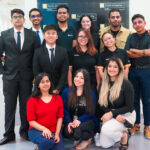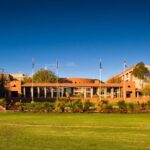Curtin University of Technology is to focus on meeting mounting demands in the resources, health, sustainability and communications sectors.
Over the next decade, partnerships with industry, business and government will be cultivated in these four key areas, as Curtin builds on its global presence.
‘We recognise these areas as being vital to the future of the State, the nation and the region,’ Vice-Chancellor Professor Jeanette Hacket said.
Working to address the skills shortage caused by the resource boom, and to renew student interest in the sciences, the University is building a $110 million Resources and Chemistry Precinct in partnership with government research body the Chemistry Centre WA and industry leader BHP Billiton. Mark Woffenden of the A J Parker Cooperative Research Centre has been appointed the inaugural Executive Director of the new Precinct.
The University has also recently announced a $10.5 million partnership with mining giant Rio Tinto and has also joined with the Chamber of Minerals and Energy in a new initiative in resource education provision. These developments build on the University’s long standing partnerships and expertise in the resources sector.
To help cure the country’s ailing health sector, Professor Hacket has announced the University will create a ‘bold, integrated and relevant’ health institute. The institute will target problem areas such as the aging population, lifestyle diseases and workforce health. ‘The institute will make a major contribution in reshaping the existing health system and keeping people out of hospital,’ said Professor Hacket.
Curtin will also play its part in addressing climate change by developing a sustainable development initiative. The University already provides courses in cleaner production, environmental biology, and sustainable aquaculture, tourism and communities. Curtin will not only work as a leader in sustainability research, but look at itself in the mirror, developing more environmentally friendly strategies for the University campuses. Planning expert Satis Arnold will lead this initiative.
In the area of information and communications technology (ICT), Curtin is closely involved in the Square Kilometre Array (SKA) project, working to win the world’s largest radio telescope for Western Australia, and the University is also the lead organisation in the State new multi-million dollar Centre for Excellence in Radio Astronomy.
With a reputation as WA’s most international university, Curtin has furthered its presence in the Asian market with the opening of a new campus in Singapore. A partnership with education services provider Navitas Ltd will see the establishment of the new campus there.
These new initiatives will build on the University’s existing strengths in business, communications and science, to set a strong foundation for Curtin’s continued growth and relevance into the next decade.


